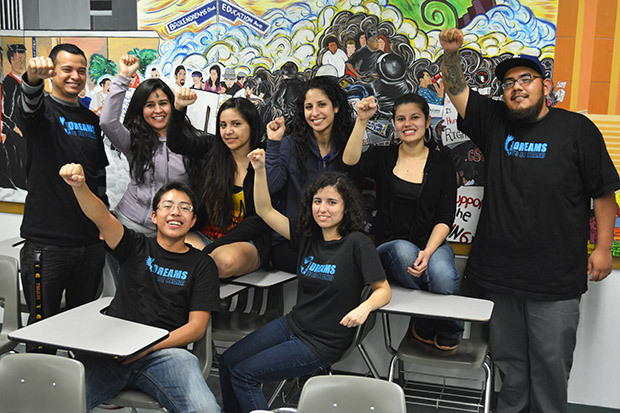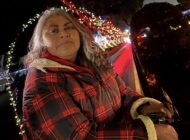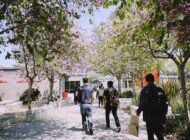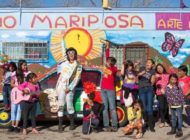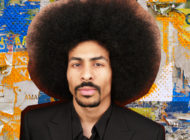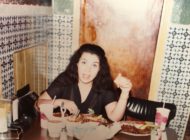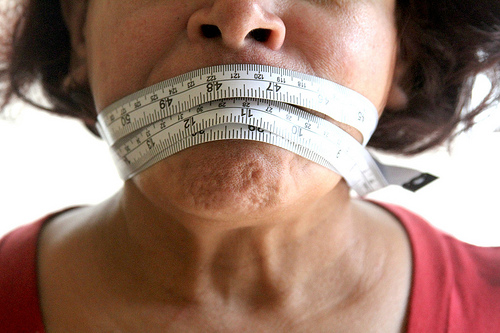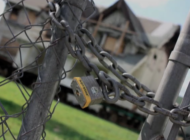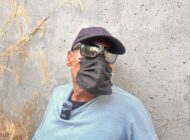“These are the students who will continue to fight for our rights and demand the university to meet our necessities. Give us the space and we will create community leaders,” said Ana Míriam Barragán, member of Dreams To Be Heard.
By JOHN SARINGO-RODRÍGUEZ
EL NUEVO SOL
After nearly a year-and-a-half of tenacious meetings with the California State University, Northridge administration, CSUN’s undocumented immigrant advocacy coalition, Dreams To Be Heard (DTBH), have broken a barrier which will allow for the undocumented student movement to move closer to their ultimate goal as underserved students: an undocumented resource center for students — which would be a first for the CSU system.
A meeting between members of DTBH and CSUN administration was held on Tuesday, March 4, at 2:30 p.m., with the sole purpose of designing a progressive itinerary to achieve DTBH’s vision of equity.
“I have known many people who give up on school because of the lack of support for [undocumented] students. There are cases where people have become depressed or have even committed suicide,” José Rosas, Chicana/o studies major and co-chair of Dreams To Be Heard, said.
The undocumented resource center will be an inviting space for students to find out what kind of support is available to them — be it information regarding financial aid and scholarships, or information about what it means to be undocumented and to have a place where students can go to get information on how to plan for their future.
Outreach and opportunity
There were no hard-nosed politics or condoning of the issues at the latest meeting. Provost Harry Hellenbrand was willing to begin accommodating DTBH’s requests; fund permitting.
“The [provost] has been open to working with [undocumented] student’s for some time. There’s a lot of issues that we have to explore like confidentiality, because not all students who are undocumented want to be ‘out’ about their status. We don’t want to inadvertently hurt anybody’s privacy,” said Juana Mora, Ph.D., assistant to the Provost, Hispanic Serving Institutions & Diversity Initiatives.
DTBH determined the number of undocumented students currently attending CSUN by estimating how many people were awarded the Dream Act scholarship against the number of applicants. 931 students applied for the scholarship while 452 students won the scholarship. This means that there are anywhere between 452 to 931 undocumented students enrolled at CSUN, and that is not taking into account students who did not apply for the Dream Act scholarship.
It was agreed upon that DTBH and CSUN administration will now be working together to find ways to outreach to undocumented students while being privacy conscious. “As of right now there is no email list of undocumented students at the financial aid office,” Mora said, “but we are looking into [other departments].”
Mora told El Nuevo Sol that should they find an email list of undocumented students, the list would be stored in one private location on campus with limited access and for the sole purpose of relaying emails to undocumented students for academic reasons.
CSUN to be enlightened
Hellenbrand and Mora recognize that some faculty and staff are ignorant when it comes to undocumented student issues. They plan on incorporating training about the issues and needs of undocumented students.
In late February, Sigrid Hernández, 24, a sociology major, said that she felt uncomfortable and discriminated against because of her undocumented status when seeking assistance from the administration offices in Bayramian Hall. Hernández said that she was talked down to and the person who was supposed to help her understand a name change for financial aid forms, told her indignantly that “in America we use our real names.”
Hernández was brought to the United States when she was 4-years-old and knows no other home, she has spent her childhood and young adult life in the U.S.; she is as American as it gets.
CSUN shines a bright light on the diversity of it’s campus. With a student population that exceeds 36,000, CSUN ought to be at the forefront of understanding and tolerance. I believe Nobel Prize winner Aleksandr Solzhenitsyn said it best: ““It’s an universal law– intolerance is the first sign of an inadequate education. An ill-educated person behaves with arrogant impatience, whereas truly profound education breeds humility.”
A foot in the door
“It’s about time that a space like this is opened for students without papeles, and who are marginalized,” said Susie Amezcua, president of CSUN’s Movimiento Estudiantil Chicana/o de Aztlán (M.E.Ch.A.,) an organization dedicated to activism and culture.
“I’ve been hearing a lot of talk within the administration and now they are acknowledging the effort being put into this important issue. This is an example of when students educate, organize and take action.”
CSUN administration has also said that they are searching for a temporary office space where small meetings can be held and undocumented students can find resources, like counseling and financial aid assistance.
“It was definitely emotional after feeling frustrated for so long — we are finally relieved. [The office] is a good step towards an active resource center,” said David González, 19, economics major and treasurer of Dreams To Be Heard.
“It will make the transition from going from high school to a university better. When I came to CSUN I didn’t know where to go to ask for financial assistance.”
Many undocumented students have difficulty finding and filling out financial aid forms. Forms like AB 540, which may give undocumented students the opportunity to pay in-state tuition. Undocumented students are very limited in where they can apply for grants, scholarships and loans and when all the resources have been dried up, many find no other option but to drop out of school.
Guidance counseling for the undocumented student
Although financial aid can be a daunting task for undocumented students, they also face a wide array of other unique problems that other students do not endure.
“In order to be a good student you need good mental health. A resource center would provide undocumented students with moral support, help with managing stress, self-esteem and motivate students to graduate,” Rosas said.
Like the Pride Center, a resource center for students who are Lesbian, Gay, Bisexual, Transgender and/or Queer, and the Veterans Resource Center, a resource center for student’s who served in the U.S. military, the undocumented resource center has been validated by CSUN administration as another space that is needed and deserved. CSUN resource centers provide a safe space for an at-risk student population where students can gain the support that they need from a support network.
Pablo Barrera, 24, an art major, said that if a undocumented resource center has been available to him at the beginning of his CSUN college career, his transition from a community college would have been a lot easier.
“[An undocumented resource center] would have tremendously helpful to me [in that] the process of losing my self-doubt would have made me feel welcomed and it wouldn’t have felt like I was breaking rules by attending [CSUN],” Barerra said.
Funding for workshops
Provost Hellenbrand is also designating up to $12,000 to cover the costs of the DTBH informational workshops on campus and outreach to high schools in the fall, according to Mora.
Workshops are held for current and prospective students and their parents, as well as faculty and staff. The workshops help undocumented people learn about the current state and federal immigration laws as well as procedures in how to deal with immigration enforcement and attorneys, according to Ana Miriam Barragan, an undocumented student and member of DTBH.
The workshops help students understand how to apply to universities as well as grants, scholarships and loans to fund their education.
Also, they allow people to “unravel their undocumented identity,” or share their own struggles of being undocumented. The workshops will provide moral support, motivation and hope for undocumented students of all ages.
Challenges ahead
“The biggest challenge we had with administration was to get them to listen to undocumented students and have them take us seriously,” said Daniela Barcenas, 22, a double major in Chicana/o studies and political science.
“Thankfully we had faculty members who have supported us for many years and vouched for us. After all, the students are the ones who experience [academic] obstacles.”
The biggest challenge is going to be for the CSUN administration to follow through with their proposals, as DTBH members assure that they will always be vocal about the issues facing undocumented students.
There are also financial challenges.
“There are people out there, voters and taxpayers who may not be happy about this,” Mora said. “They pay taxes and those taxes pay for our education, they may say that they don’t want their money to go there. I hope not, but who knows.”
Mora said that while there is a national trend in support of undocumented students, it hasn’t always been that way.
“10 years ago there was no such inclination, because the response was ‘they’re undocumented… we cannot spend state resources on them,’” Mora said. “The political climate is changing, so it’s a little bit easier to provide some support.”
Students require external financial support because the university budget is focusing on classrooms and the basic things that student’s need to get their degrees, according to Mora.
However, no one knows when the funding for an actual building will be available to create an undocumented resource center, but efforts are being made.
“We’re trying to do fundraising…to start either a virtual or physical center,” Mora said.
Dreams to be Heard and a group of faculty applied for a campus quality fee and asked for about $60,000.
Despite the hardships ahead, DTBH and their allies remain optimistic that undocumented students will soon have a resource center to call their own.
“This [office space] opened the door for our students to receive support and services, but most importantly we will also be shaping confident and unafraid students who will have an opportunity to free themselves from the shadows,” said Barragan.
“These are the students who will continue to fight for our rights and demand the university to meet our necessities. Give us the space and we will create community leaders.”
Related Articles:
Undocuqueer student struggles to break a double closet
Dreamers en CSUN: La lucha continúa
Los Dreamers de aquí y de allá son de CSUN
Tags: CSUN dreamers Dreams To Be Heard John Saringo-Rodríguez soñadores undocumented immigrants undocumented students






